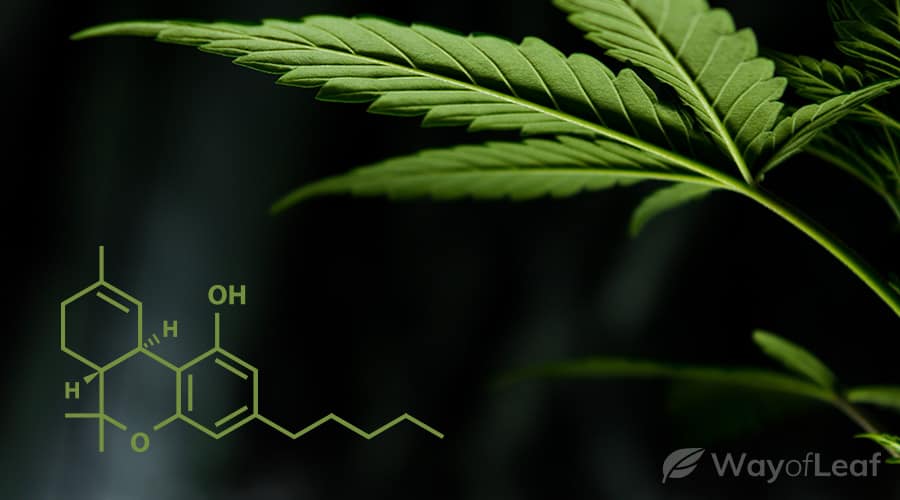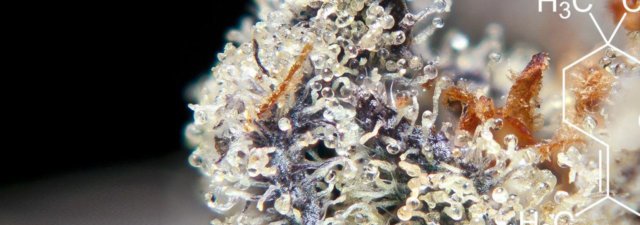According to the National Institute of Health (NIH), there are over 540 chemical substances in the cannabis plant. Estimates vary, but there are potentially over 100 cannabinoids alone. THC is the best-known, and has subsequently undergone the greatest level of research in recent years.
Still, many people remain unaware that the famed cannabinoid’s full name is delta 9 THC. Even fewer people realize there are other forms of tetrahydrocannabinol, including delta 8-THC, which is starting to come to prominence.
In this article, we investigate the key differences between delta 9 and delta 8 THC.
What’s the Difference Between Delta 8 and Delta 9?
Delta 8-THC is classified as a minor cannabinoid. It is found in small concentrations in most strains of marijuana and hemp. Delta 8 is a degraded form of THC that isn’t directly produced by cannabinoid-synthesizing enzymes. Even storing THC for an extensive time can cause it to break down into delta 8.
Delta 9, on the other hand, is the cannabinoid associated with the intoxicating high that is experienced after using marijuana. It is significantly more abundant than delta 8. The laws surrounding delta 9 are also far clearer than those for delta 8.
Both of these cannabinoids have similar molecular chains, and they may both cause intoxicating effects. However, they produce slightly different effects in users.
Delta 8 vs. Delta 9: Do They Get You High?
Technically, both of these compounds can produce a high. They both bind to CB1 receptors in the brain, but they have different action mechanisms. This is because of their differing molecular structure, which results in a different bond affinity with receptors.

When delta 9-THC binds with the CB1 receptor, it creates prominent psychotropic effects. Delta 8 creates a weaker bond, which makes it less intoxicating.
Still, most users can expect to feel a mild high from delta 8-THC, though it is nothing compared to the intoxication from delta 9.
Effects of Delta 8 and Delta 9 THC
As a result of this varying level of potency, d-8 and d-9 THC have different effects. Some of them are similar, such as feelings of happiness and euphoria. It’s also common to feel uplifted after consuming both types of THC.
Since delta 9 THC is stronger, however, its euphoric feelings can be more potent and much more noticeable. With delta 8, users claim to feel uplifted, but still able to concentrate and carry out routine daily tasks.
Both compounds also have medical benefits. Delta 9-THC has numerous potential applications, which is why so many states now permit medical marijuana. Meanwhile, there are a few studies on delta 8 THC which indicate that it could have several therapeutic uses.
For example, a study published in Life Sciences looked at how delta 8 affected children who had a form of cancer. Researchers administered various standard chemotherapy drugs for eight months before using delta 8 THC. The children consumed delta 8 two hours before each chemotherapy session, and continued every six hours for 24 hours.
It was observed that the delta 8 THC medication reduced vomiting as a side effect of chemotherapy. The patients also reported few side effects.
Similarly, a preclinical study published in Cannabis and Cannabinoid Research found that delta 8-THC reduced pain and inflammation in mice. The United Sates National Library of Medicine has also suggested that delta 8 poses anxiety-reducing properties.
Delta 8 vs. Delta 9: Legality
Delta 9 THC is illegal in the United States on a federal level; there is no debate about this. However, there is ongoing confusion about the legal status of delta 8 THC. In August 2020, the DEA updated its controlled substances list to include delta 8, which appears to make delta 8 derived from marijuana illegal.
That being said, few seem sure if it is the same situation when delta 8 is derived from hemp. The assumption is that the 2018 Farm Bill allows it. After all, the legislation states that industrial hemp with a maximum of 0.3% THC is legal to grow in the US. The implication is that this rule relates to delta 9 THC.
As things stand, the regulations that have been introduced since the legalization of hemp have not been tremendously clear in terms of establishing reliable guidelines for delta 8 THC legality. There are companies that sell hemp-derived delta 8 products online and ship them nationwide across the USA, but again, it is not clear as to the explicit legal guidelines of these products across all 50 states.
Delta 8 vs. Delta 9: Production
Both delta 8 and delta 9 are found in cannabis plants, including hemp and marijuana. As we discussed previously, hemp plants in the US can contain a maximum of 0.3% delta 9 THC, which means that most THC products come from marijuana.
At the moment, manufacturers tend to source delta 8-THC from hemp. Commonly, the manufacturer extracts CBD from hemp before refining it into an isolate. Then, the CBD isolate is synthesized into delta 8-THC. This lengthy processing is what makes delta 8 products so expensive.
Delta 8 vs. Delta 9: Sale
In theory, customers throughout the US can purchase delta 8-THC. In many states, you can purchase delta 8-THC online and have it shipped straight to your door.
That said, the vague legal language surrounding delta 8 makes some brands hesitant. Even some companies that make delta 8 will not ship to certain states. The following are states that are commonly exempt from delta 8-THC sales:
- Alaska
- Arizona
- Arkansas
- Colorado
- Delaware
- Idaho
- Iowa
- Mississippi
- Montana
- Rhode Island
- Utah
Delta 9 THC also has complications in terms of nationwide sales. Many states only allow those with a medical card to purchase THC products. There are currently 16 states that allow recreational THC use for those over the age of 21. Everywhere else, d-9 THC is either illegal or only permitted for medicinal use.
Delta 8 THC vs. Delta 9 THC: Dosage
It can be tricky determining how much delta 8-THC to take. For those who have never used the cannabinoid, it could be risky to take a lot. Each individual will react differently to cannabinoids, including both forms of THC.
Manufacturers typically dose delta 8 edibles at twice the strength of delta 9-THC gummies. This accounts for delta 8’s comparative lack of potency.
Many delta 9 THC gummies contain 10mg of THC as a standard dose. In many cases, users will halve this dose to take just 5mg. Conversely, it’s common to see 25mg delta 8-THC gummies in a single dose.
Given the lack of comprehensive research on delta 8-THC, it’s impossible to say how much users should take. This is why it’s vital to go “low and slow,” and also to ensure you buy from a reputable company.
Final Thoughts on Delta 8 THC vs. Delta 9 THC
In the ongoing delta 8 vs. delta 9 THC debate, there is little consensus. Both cannabinoids are found in cannabis and hemp, although delta 9 is both more common and more potent.
As things stand, delta 8 from hemp may be legal in the US, although this isn’t 100% clear. Hopefully, new regulations will be introduced soon to let manufacturers know where they stand.

![Bisabolol Cannabis Terpene [All You Need to Know]](https://wayofleaf.com/wp-content/uploads/2020/11/wol-banner-bisabolol-cannabis-terpene-640x225.jpg)
![Can CBD Oil Be Taken with Ibuprofen? [What the Science Says]](https://wayofleaf.com/wp-content/uploads/2020/08/wol_can-cbd-oil-be-taken-with-ibuprofen-1-640x225.jpg)
![What Is Limonene? [Ultimate Cannabis Terpene Guide]](https://wayofleaf.com/wp-content/uploads/2020/04/what-is-limonene-1-640x225.jpg)
![What Is Myrcene? [The Cannabis Terpene Explained]](https://wayofleaf.com/wp-content/uploads/2019/10/mj_mj_what_is_myrcene_1920-min-640x225.jpg)

![Medical Cannabis Vs. Morphine [The Difference]](https://wayofleaf.com/wp-content/uploads/2018/11/mj_medical-cannabis-versus-morphine-640x225.jpg)




![Top 10 Cannabinoids: What Are They and What Do They Do? [GUIDE]](https://wayofleaf.com/wp-content/uploads/2018/09/wol_top-cannabinoids-and-what-they-do-640x225.jpg)
